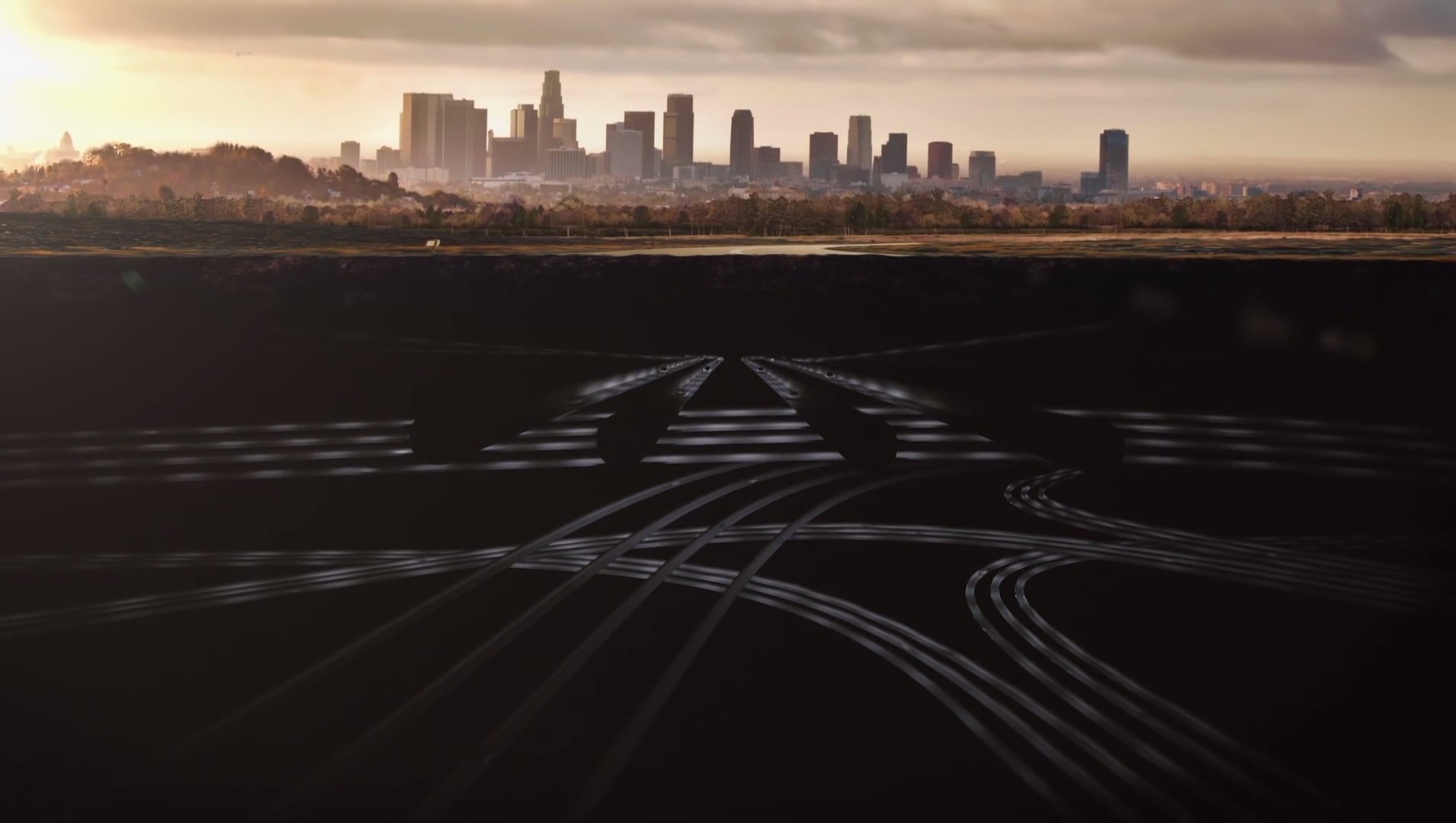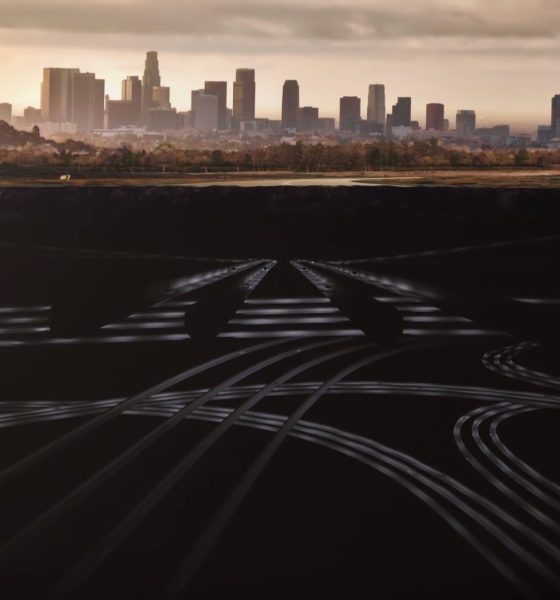

News
Elon Musk and Israel in discussions about Boring Company transport project
Elon Musk’s tunnel digging technology developed by The Boring Company is being eyed by Israel as a potential solution to the country’s traffic and public transportation woes. Israeli Prime Minister Benjamin Netanyahu revealed at a recent campaign event that his government was in talks with the serial entrepreneur about tapping into Boring’s tunneling solutions to address infrastructure concerns.
“I met a man that they call Elon Musk — have you heard of him? A real genius,” Netanyahu said, as published in a report by Bloomberg. ““Right now we’re in conversation with him to see if we can tunnel the State of Israel.” The two men’s discussion took place at the Prime Minister’s residence over a breakfast.

Israel’s population growth has outpaced its infrastructure development thanks to an immigration influx and a surge in economic growth over the last two decades. Its small geographic area – about 290 miles long and 85 miles across at its widest – requires innovative solutions that take its space limitations into account when it comes to transportation solutions.
Several underground rail projects are underway in Israel; however, only one subway system is currently running in the country. It will remain that way until the planned Tel Aviv Light Rail lines become operational, the earliest planned for 2021 to the tune of $3 billion dollars for 14 miles of line. When compared to The Boring Company’s prior expenditure of only $10 million per mile of tunnel, it’s perhaps understandable why Israel would be interested in Musk’s improved digging technology.

Although the Boring Company hasn’t captured many headlines since its Monty Python watchtower days since its Hawthorne test tunnel completion, interest in the developed technology hasn’t waned with those who could benefit from its potential. In Las Vegas, a proposed two-mile transport line to be constructed by Musk’s company was recently approved by the city’s Convention and Visitors Authority board of directors. As planned, a series of underground tunnels will be dug by Boring, encompassing the local convention center and possibly expand to the McCarran International Airport. The estimated cost is between $35 and $55 million, and its completion set for the end of 2019, according to Musk.
The Boring Company’s planned high-speed transit tunnel connecting O’Hare International Airport with downtown Chicago is also still in the works despite criticism from local officials. Musk has estimated a cost of around $1 billion for the 18-mile project, none of which will be a taxpayer burden due to private investment. These private funding plans are a big source of skepticism surrounding Musk’s tunneling project, but enough support within Chicago’s government remains to continue moving forward.
The Hawthorne test tunnel, debuted on December 18th last year with fanfare and test rides, was constructed using a conventional tunnel boring machine (TBM) nicknamed Godot. The next iteration of Boring’s machines, an upgraded hybrid TBM named Line-Storm, will be operational any day now, according to Musk via Twitter. “Maybe active in a month or so. Focus right now is getting to high speed, tight follow distance in test tunnel,” he tweeted in reply to a status inquiry about Line-Storm at the end of February this year.

Line-Storm is estimated to be twice as fast as Gadot and will be succeeded by the all-electric Prufrock, a TBM being completely designed and built by The Boring Company. Prufrock will be 10-15x faster than than conventional machines, plus meet the energy and environmental standards driving all of Musk’s companies by having zero emissions.
Just as with Tesla’s Full Self-Driving technology, though, The Boring Company’s projects face regulatory hurdles and pushback that will likely be a determining factor in whether or not its many projects succeed. It remains to be seen whether Israel will have the same legal obstacles if its Prime Minister’s discussions with Musk manifest into any solid agreements.

News
Tesla ships out an update for everyone that California caused
“This change only updates the name of certain features and text in your vehicle,” the company wrote in Release Notes for the update, “and does not change the way your features behave.”

Tesla has shipped out an update for its vehicles that was caused specifically by a California lawsuit that threatened the company’s ability to sell cars because of how it named its driver assistance suite.
Tesla shipped out Software Update 2026.2.9 starting last week; we received it already, and it only brings a few minor changes, mostly related to how things are referenced.
“This change only updates the name of certain features and text in your vehicle,” the company wrote in Release Notes for the update, “and does not change the way your features behave.”
The following changes came to Tesla vehicles in the update:
- Navigate on Autopilot has now been renamed to Navigate on Autosteer
- FSD Computer has been renamed to AI Computer
Tesla faced a 30-day sales suspension in California after the state’s Department of Motor Vehicles stated the company had to come into compliance regarding the marketing of its automated driving features.
The agency confirmed on February 18 that it had taken a “corrective action” to resolve the issue. That corrective action was renaming certain parts of its ADAS.
Tesla discontinued its standalone Autopilot offering in January and ramped up the marketing of Full Self-Driving Supervised. Tesla had said on X that the issue with naming “was a ‘consumer protection’ order about the use of the term ‘Autopilot’ in a case where not one single customer came forward to say there’s a problem.”
This was a “consumer protection” order about the use of the term “Autopilot” in a case where not one single customer came forward to say there’s a problem.
Sales in California will continue uninterrupted.
— Tesla North America (@tesla_na) December 17, 2025
It is now compliant with the wishes of the California DMV, and we’re all dealing with it now.
This was the first primary dispute over the terminology of Full Self-Driving, but it has undergone some scrutiny at the federal level, as some government officials have claimed the suite has “deceptive” names. Previous Transportation Secretary Pete Buttigieg was one of those federal-level employees who had an issue with the names “Autopilot” and “Full Self-Driving.”
Tesla sued the California DMV over the ruling last week.
News
Tesla workers push back against Giga Berlin unionization
“IG Metall did not succeed in Giga Berlin‘s works council election earlier today. The union share was reduced from nearly 40% in 2024 to 31% in 2026! This is a clear message by the Giga Berlin team towards an independent co-determination! The list called Giga United, led by the current chairwoman, Michaela Schmitz, received the most votes with more than 40%! Good news for Giga Berlin!”

Tesla workers pushed back against unionization efforts at Gigafactory Berlin, and over the past few years, there has been a dramatic decrease in interest to unionize at the German plant.
Gigafactory Berlin Plant Manager André Thierig announced on Wednesday that IG Metall, the European union group, saw its share reduce from 40 to 31 percent in 2026 as employees eligible to vote on the issue. Instead, the Giga Berlin team, known as Giga United, received the most votes with more than 40 percent.
BREAKING! 🚨
IG Metall did not succeed in Giga Berlin‘s works council election earlier today. The union share was reduced from nearly 40% in 2024 to 31% in 2026!
This is a clear message by theGiga Berlin team towards an independent co-determination!
The list called Giga…
— André Thierig (@AndrThie) March 4, 2026
Thierig gave specific details in a post on X:
“IG Metall did not succeed in Giga Berlin‘s works council election earlier today. The union share was reduced from nearly 40% in 2024 to 31% in 2026! This is a clear message by the Giga Berlin team towards an independent co-determination! The list called Giga United, led by the current chairwoman, Michaela Schmitz, received the most votes with more than 40%! Good news for Giga Berlin!”
There were over 10,700 total employees who were eligible to vote, with 87 percent of them turning out to cast what they wanted. There were three key outcomes: Giga United, IG Metall, and other notable groups, with the most popular being the Polish Initiative.
The 37-seat council remains dominated by non-unionized representatives, preserving Giga Berlin as Germany’s only major auto plant without a collective bargaining agreement.
Thierig and Tesla framed the outcome as employee support for an “independent, flexible, and unbureaucratic” future, enabling acceleration on projects like potential expansions or new models. IG Metall expressed disappointment, accusing management of intimidation tactics and an “unfair” campaign.
The first election of this nature happened back in 2022. In 2024, IG Metall emerged as the largest single faction with 39.4 percent, but non-union lists coalesced for a majority.
But this year was different. There was some extra tension at Giga Berlin this year, as just two weeks ago, an IG Metall rep was accused by Tesla of secretly recording a council meeting. The group countersued for defamation.
Tesla Giga Berlin plant manager faces defamation probe after IG Metall union complaint
This result from the 2026 vote reinforced Tesla’s model of direct employee-management alignment over traditional German union structures, amid ongoing debates about working conditions. IG Metall views it as a setback but continues advocacy. Tesla sees it as validation of its approach in a competitive EV market.
This outcome may influence future labor dynamics at Giga Berlin, including any revival of expansion plans or product lines, which Musk has talked about recently.
News
SpaceX President Gwynne Shotwell details xAI power pledge at White House event
The commitment was announced during an event with United States President Donald Trump.

SpaceX President Gwynne Shotwell stated that xAI will develop 1.2 gigawatts of power at its Memphis-area AI supercomputer site as part of the White House’s new “Ratepayer Protection Pledge.”
The commitment was announced during an event with United States President Donald Trump.
During the White House event, Shotwell stated that xAI’s AI data center near Memphis would include a major energy installation designed to support the facility’s power needs.
“As you know, xAI builds huge supercomputers and data centers and we build them fast. Currently, we’re building one on the Tennessee-Mississippi state line. As part of today’s commitment, we will take extensive additional steps to continue to reduce the costs of electricity for our neighbors…
“xAI will therefore commit to develop 1.2 GW of power as our supercomputer’s primary power source. That will be for every additional data center as well. We will expand what is already the largest global Megapack power installation in the world,” Shotwell said.
She added that the system would provide significant backup power capacity.
“The installation will provide enough backup power to power the city of Memphis, and more than sufficient energy to power the town of Southaven, Mississippi where the data center resides. We will build new substations and invest in electrical infrastructure to provide stability to the area’s grid.”
Shotwell also noted that xAI will be supporting the area’s water supply as well.
“We haven’t talked about it yet, but this is actually quite important. We will build state-of-the-art water recycling plants that will protect approximately 4.7 billion gallons of water from the Memphis aquifer each year. And we will employ thousands of American workers from around the city of Memphis on both sides of the TN-MS border,” she noted.
The Ratepayer Protection Pledge was introduced as part of the federal government’s effort to address concerns about rising electricity costs tied to large AI data centers, as noted in an Insider report. Under the agreement, companies developing major AI infrastructure projects committed to covering their own power generation needs and avoiding additional costs for local ratepayers.








